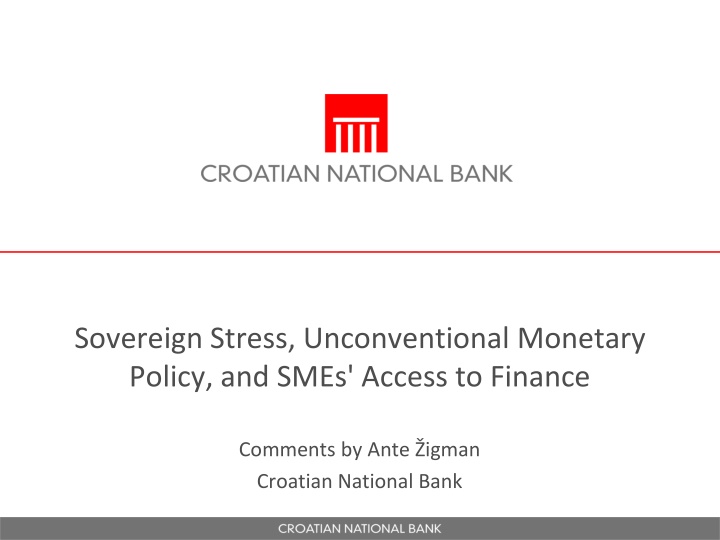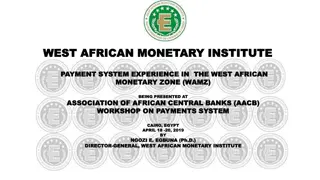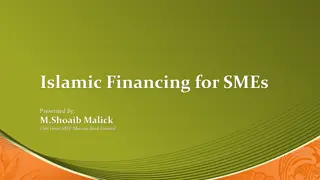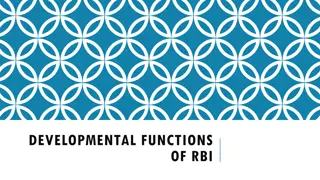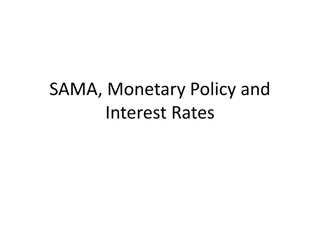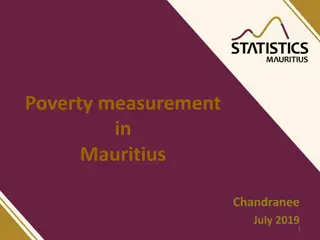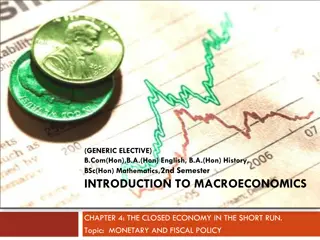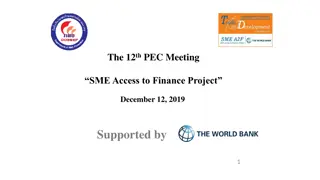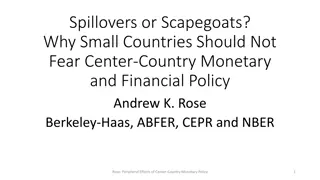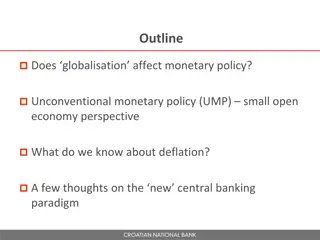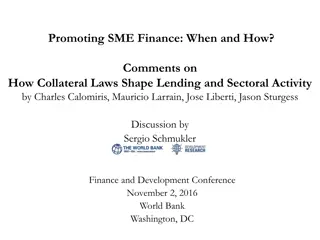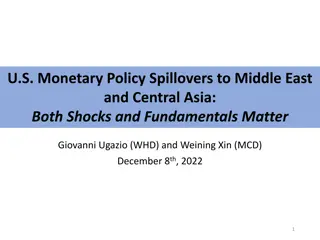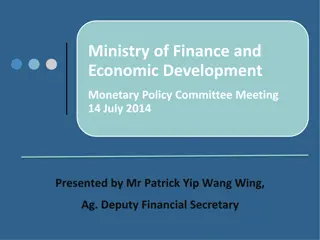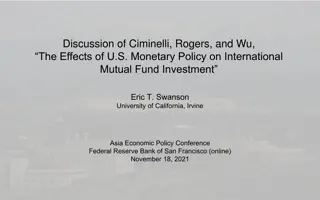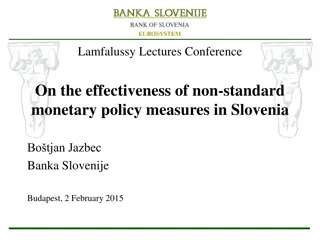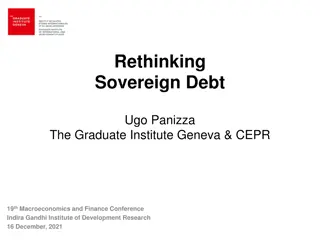Impact of Sovereign Stress and Unconventional Monetary Policy on SME Finance
The paper discusses how sovereign stress and unconventional monetary policy affect SMEs' access to finance. It explores the impact on credit constraints, alternative funding sources, and the role of OMT program. Findings suggest that sovereign stress leads to reduced credit access, but OMT program announcement shows a positive effect. The political economy context of OMT is also analyzed, highlighting its role in the financial sector.
Download Presentation

Please find below an Image/Link to download the presentation.
The content on the website is provided AS IS for your information and personal use only. It may not be sold, licensed, or shared on other websites without obtaining consent from the author.If you encounter any issues during the download, it is possible that the publisher has removed the file from their server.
You are allowed to download the files provided on this website for personal or commercial use, subject to the condition that they are used lawfully. All files are the property of their respective owners.
The content on the website is provided AS IS for your information and personal use only. It may not be sold, licensed, or shared on other websites without obtaining consent from the author.
E N D
Presentation Transcript
Sovereign Stress, Unconventional Monetary Policy, and SMEs' Access to Finance Comments by Ante igman Croatian National Bank
Disclamers In the paper there is a lot of empirical work and econometrics. I decided not to comment on those details because both my preferences and comparative advantage lies elsewhere. My comments will rely on personal, regional experience.
What the story is all about? The authors ask a very relevant question: How sovereign stress and unconventional monetary policy affect access to finance and the overall capital structure of SMEs. It is done in three separate dimensions: It was studied the evolution of credit constraints faced by small euro area firms, before and after the sovereign debt crisis and before and after the announcement of the OMT program. Proxies are observed for firms creditworthiness to study which firms are most affected by sovereign stress and by unconventional monetary policy. How small firms use of alternative funding sources responds to changes in credit access.
What the story is all about? The main findings are: Sovereign crises can have an indirect negative effect on the economy through the channel of bank lending Sovereign stress results in strong supply-driven reduction in credit access. Unorthodox monetary policy can partially reverse this effect. The announcement of the OMT Program has an immediate positive effect on credit access.
Political economy context of OMT (1) There was a lot of criticism that OMT are used primarily to save financial sector. Eurozone bond rate spreads have narrowed after OMT started leading some to think that the crisis is fading, but the narrowing is not due to an improvement in fundamentals there is permanent need for structual reforms. Where did the risk disappeared? Actually risk is transferred somewhere else. Maybe ECB? The success of the ECB s OMT programme shows the role that a central bank can play when it moves in the direction of accepting its role as a lender of last resort. (Wyplosz 2011)
Political economy context of OMT (2) Mario Draghi, ECB President, said that frankly, when you look at the data, it s really very hard not to state that OMT has been probably the most successful monetary policy measure undertaken in recent times (Draghi 2013). This paper is one of the evidence that confirms this statement few years later. impact of unconventional monetary policy, we find an immediate positive impact on access to finance in stressed countries during the first six months after the announcement of the ECB s OMT Program.
Overall paper assessment Topic very important for European economy especially for Euro area. Product of a long and deep research effort in European banking and European companies. Quite an enjoyable reading. There are lot of findings exactly 22 Very clear presentation: Provides clear and concise description of research (and there is lot of it!!!). There optimal number of countries : five experienced sovereign debt stresss and six euro area that did not experience debt stress.
Fundamental issues (I) There is very simplified monetary transmission channel which explain influence of OMT to SME only bank lending channel. What about other possible channels of influence? Interest rate channel? Asset price channel?
Fundamental issues (II) There is no mention of the situation in the banks in the observed period. What about capital adequacy in banks in stressed countries and non- stressed countries? How important is condition of banks on financing SMEs? We are witnessing that macroprudentianl policy is very important in bank lending channel.
Fundamental issues (III) What is the role of confidence inside of bank lending channel? Are OMT operations question of liquidity or confidence? After OMT operations risk disappeared from financial system? Someone overtook the risk Banks are liquid but in some countries like Croatia .
When it comes to loans and bank channel You can lead a horse to water, but you can't make it drink
In comparison with the rest of world there is small doubt about success of OMT
Summing up Interesting and relevant question: role of OMT on SME access to finance, a lot of hard work, but My humble, practitioner s suggestions are: Due to regional differences, focus on regions separately, there are some disclaimers on Greece and on Germany It will be helpful if there is some explanation on other transmission mechanism channels Maybe the banks are a bit marginalized in paper and there is a need to pay more attention on them.
